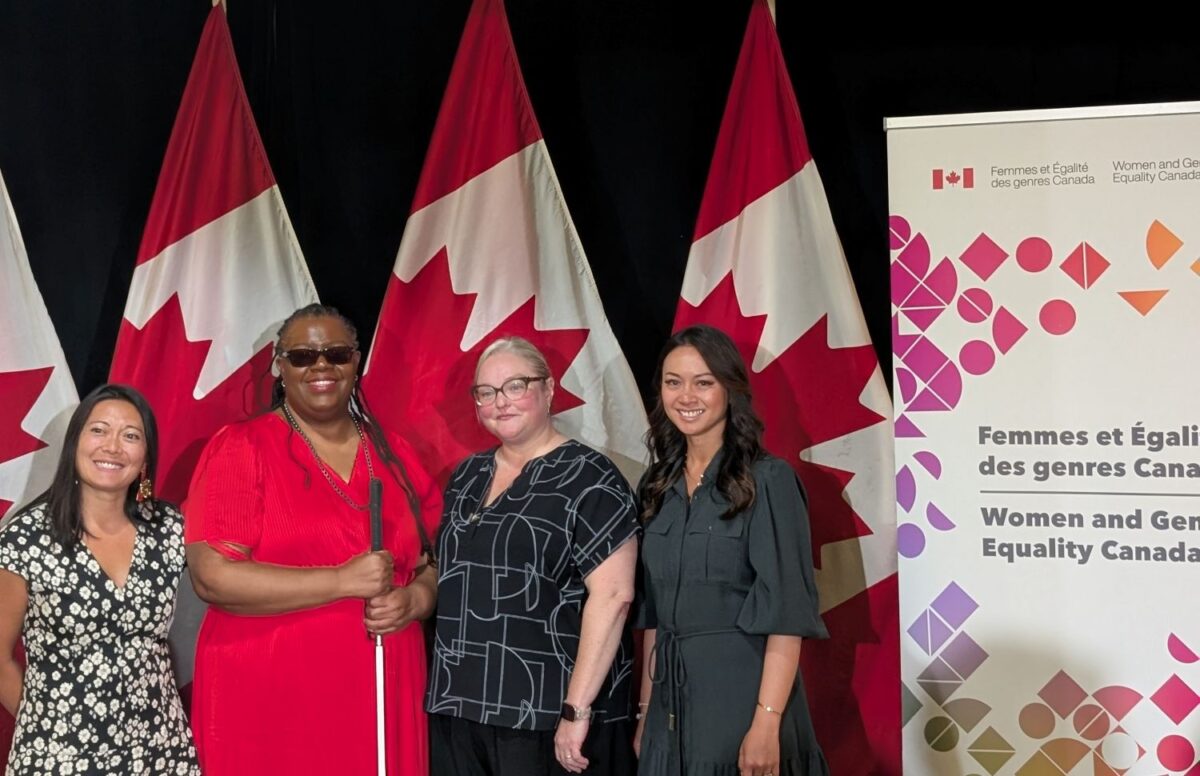Breaking Barriers Resulting in Inclusive Growth for Episodic Disability

Realize has been working at the intersections of disability, gender, sexual orientation, age, and racial identity for many years, establishing powerful partnerships with community organizations across the disability sector and beyond. These partnerships help create sustainable change for people living with episodic disabilities.
In August 2025, Realize received funding from Women and Gender Equality (WAGE) Canada to lead a project aimed at educating, developing community resources, and supporting organizations in dismantling employment barriers faced by women living with episodic disabilities.
At Realize, the definition of a ‘woman’ is expansive, meaning anyone who identifies as such. This definition includes, but is not limited to, cisgender women, transgender women, and non-binary people.

What are Episodic Disabilities?
Episodic disabilities are complex chronic illnesses, that can have disabling impacts on work, personal, and social life. Unpredictable in their length, severity, and occurrence, examples of episodic disabilities include long-COVID, multiple sclerosis (MS), lupus, arthritis, HIV, diabetes, and mental health conditions. Episodic conditions impact millions of women in Canada, sometimes without any visible signs of disability.
How do women with episodic disabilities experience the workplace differently?
Women may experience unique barriers related to episodic disabilities, which can affect trust, workplace relationships, career development opportunities, mental health, and personal growth. Factors, such as age, race, sexuality, and immigration status, also influence how women move through life with an episodic disability. In Canadian workplaces, women may experience barriers that include assumptions about abilities, denial of accommodations, and a lack of understanding of how episodic disabilities affect work opportunities. Barriers occur in situations related to workforce entry, job retention, promotions, and achieving career goals due to the ongoing gap in pay equity and employment access between men and women, inaccessible work policies, and workplace decision makers that do not know about,
or understand episodic disabilities.
About Realize
Realize, an established national leader in episodic disabilities, is uniquely positioned to build the capacity of organizations of all sizes to improve the system wide experiences of women across the employment spectrum. With a national reach, Realize is well-placed to partner with workplaces and policymakers to address the complex employment needs of women with episodic disabilities.
Project Activities:
WE-BRIDGE will educate employers on how to engage women living with episodic disabilities in their organizations and help to improve the workplace experience through the following activities.
1. Regional in-person and online workshops for employers to:
- Understand gender norms and biases
- Build inclusive leadership and flexibility in the workplace
- Explore unconscious biases
- Create supportive work environments
- Share and learn from lived experiences
2. Virtual National Summit on “Women, Episodic Disabilities, and Employment”
The 2027 national Summit will serve as the final event of the project, bringing together leaders from various sectors (corporate, nonprofit, public policy, etc.), women with lived experiences of episodic disability, and advocates to discuss new insights and ways to improve employment and career opportunities for women across Canada.
3. Capacity-Building Cohorts
Participants from the workshops (both in-person and online) will be invited to join learning cohorts. Cohorts will be designed to facilitate ongoing dialogue, resource sharing, and peer support. These cohort meetings will provide ongoing connections for organizations and
individuals who are committed to creating inclusive workplaces for women living with episodic disabilities.
The project work is now getting underway. If you would like more information or to participate, contact Project Lead, Addison Brash, at abrash@realizecanada.org
The WE-BRIDGE project is supported by :

